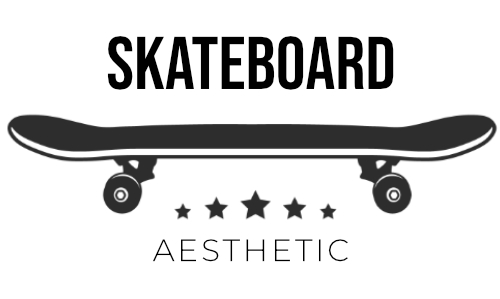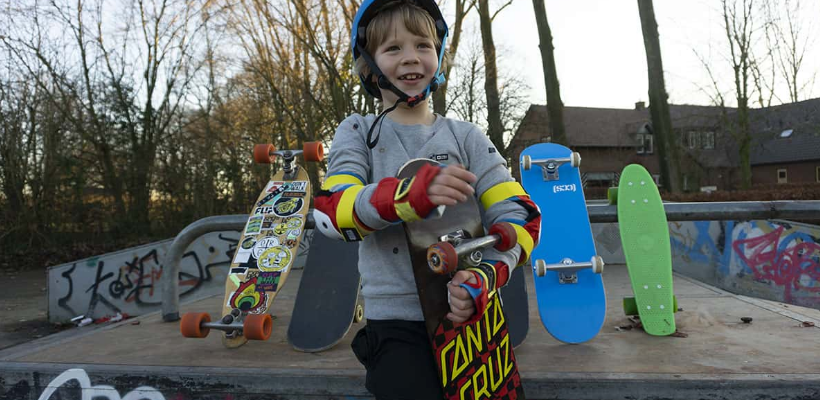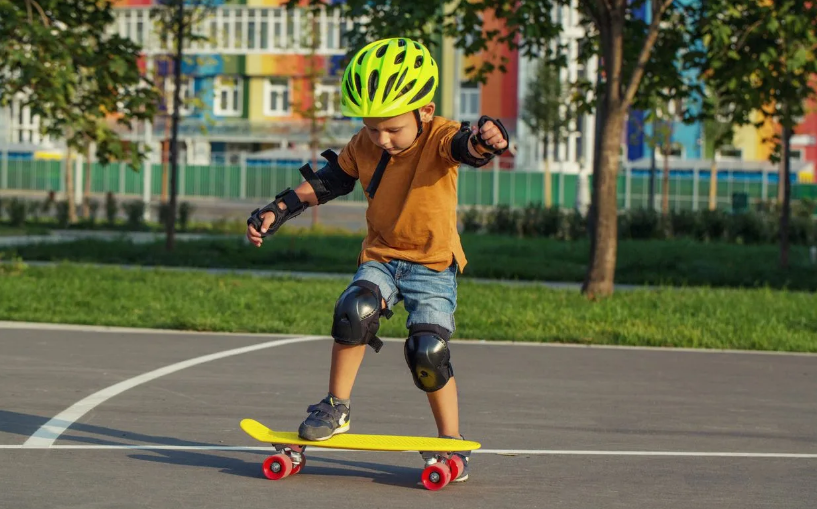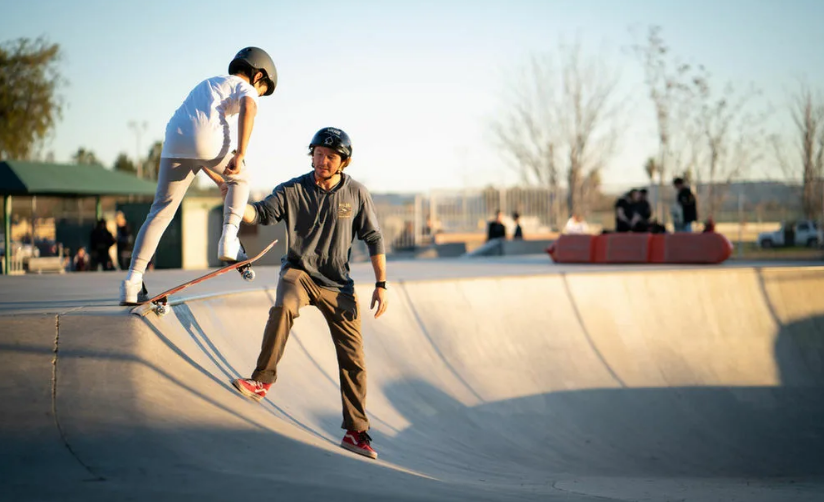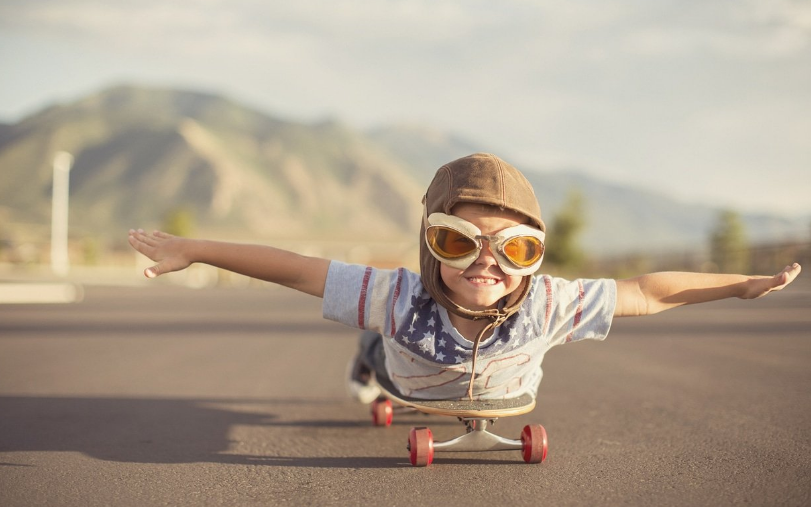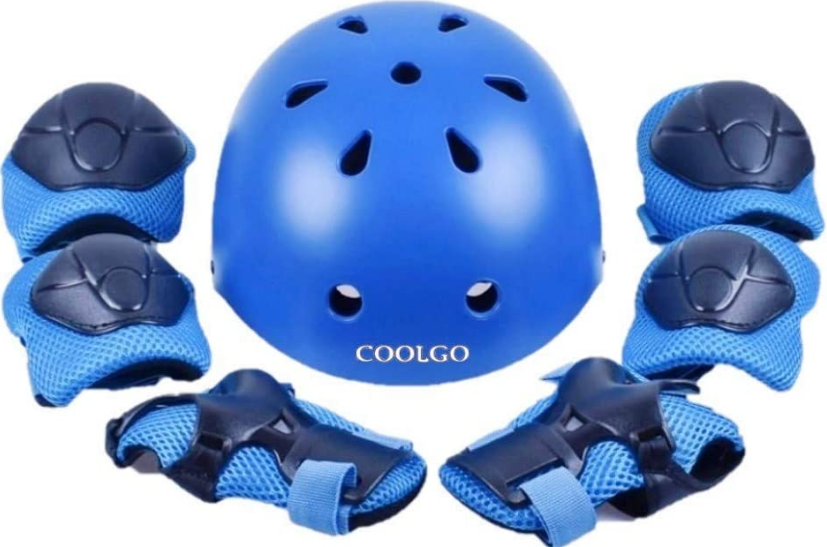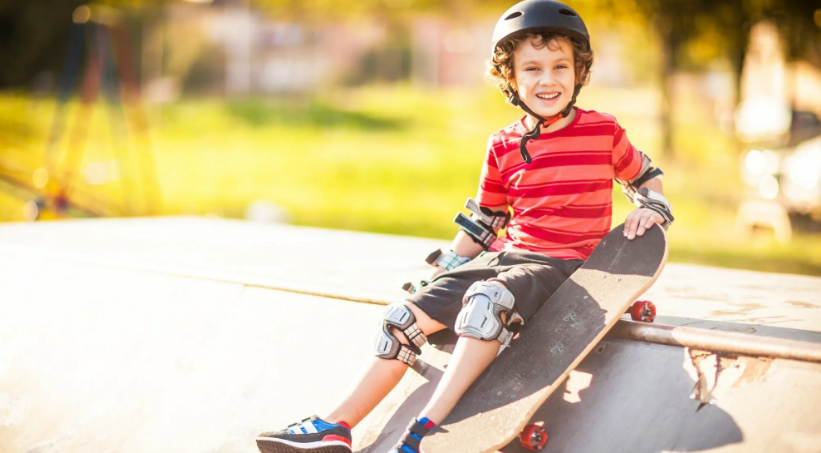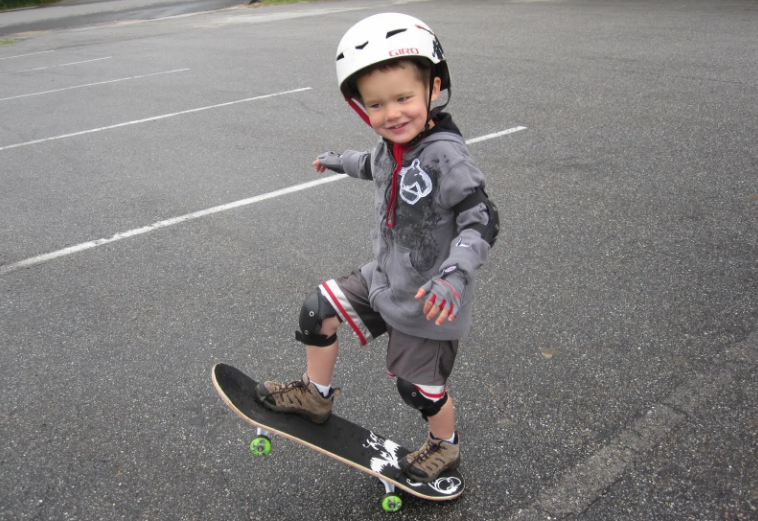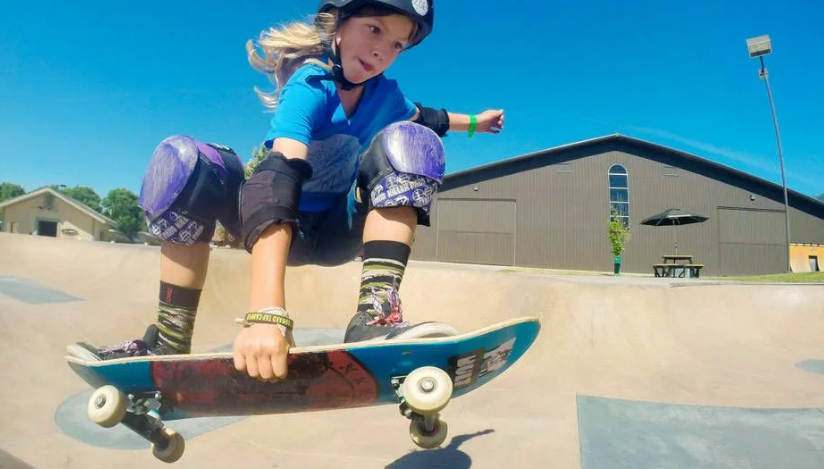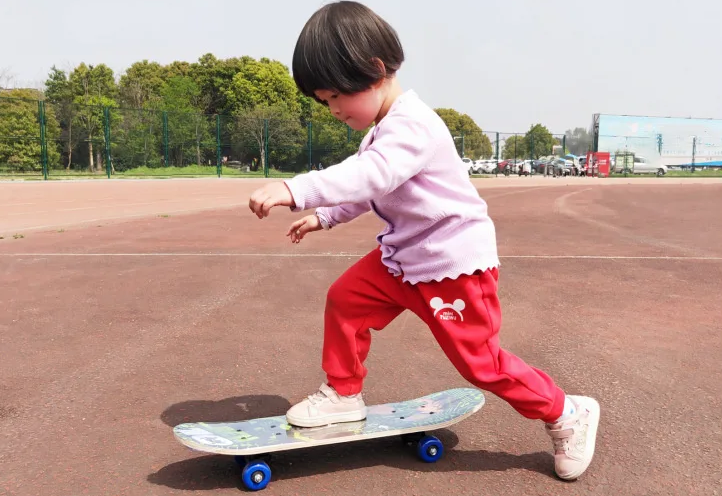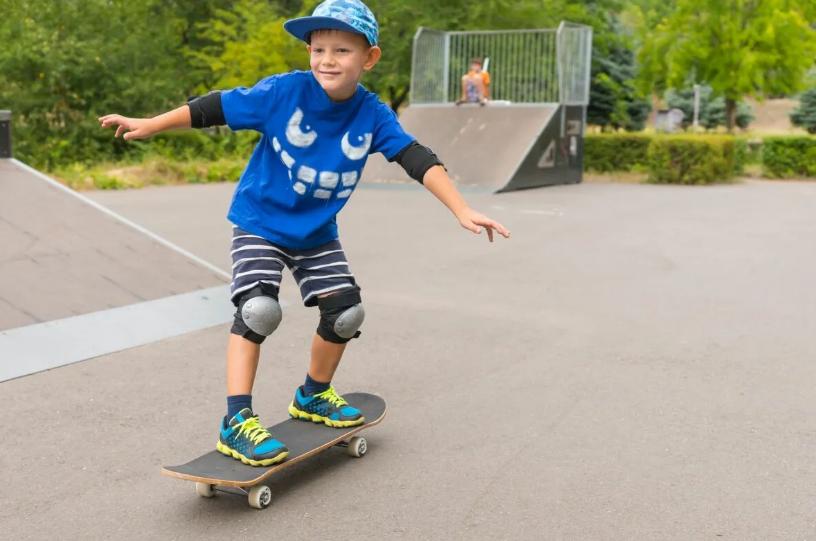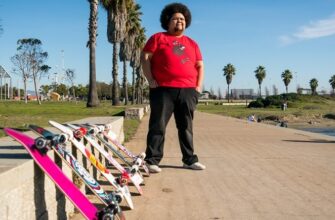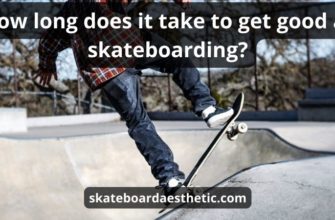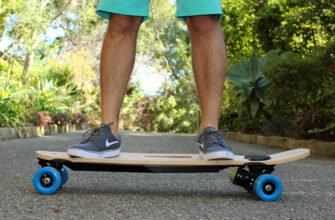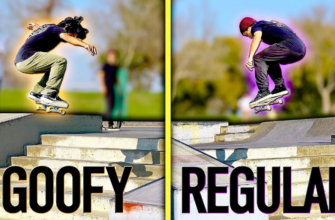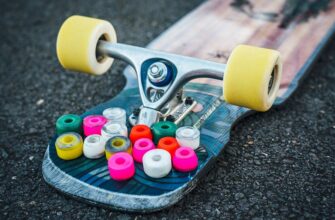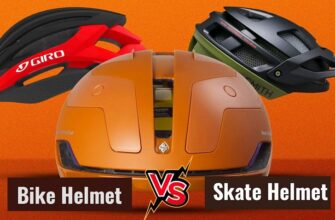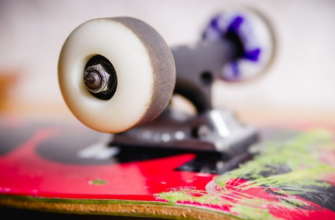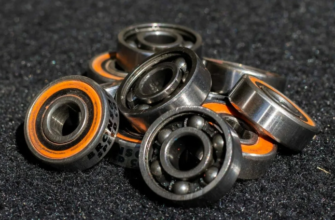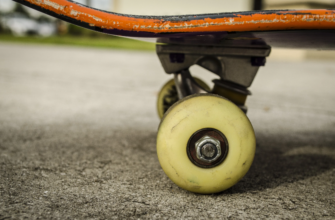When is the best time to start skateboarding? There is no definitive answer to this question since it depends on a variety of factors, such as your child’s age, maturity, and physical development. However, we would generally recommend waiting until your child reaches at least five years of age before allowing them to start skateboarding.
This is because children younger kids don’t have fine motor skills and are harder to balance on skateboards. Additionally, it’s important to keep in mind that skateboarding can be a dangerous activity if not performed correctly. So you must be attentive to your child and provide adequate supervision whenever they are skateboarding.
- Best age to start skateboarding
- Beginner’s guide to skateboarding: is your child ready?
- What protective gear should young skaters wear when skateboarding?
- What are the risks involved with kids starting skateboarding at a young age?
- How can you help your child gain balance and develop motor skills for skateboarding?
- How to choose the best skateboard for kids?
- Becoming a skateboarding mom
- Benefits of skateboarding for kids
- Hit the skate park!
- FAQs
- What age is too late to start skateboarding?
- Is 12 too old to start skateboarding?
- Is 14 a good age to start skateboarding?
- Is 15 a good age to start skateboarding?
- Can I learn to skate at 18?
- Is 23 too old to learn how do you skateboard?
- Is it worth learning skateboarding?
- Is it hard to start skateboarding?
- How old are most skateboarders?
- Can skate levels by age?
- Conclusion
Best age to start skateboarding
The best age to start skateboarding according to the specialists is five years and above. Equip your child with safety gear such as helmets, knee pads, elbow pads, and wrist guards. Setting up a ramp or hurdle that’s appropriate for the beginner’s level is also essential.
Why is it recommended that kids under 5 don’t ride skateboards?
The American Academy of Pediatrics (AAP) does not urge to ride skateboards for children younger than 5 years old. The organization cites a lack of motor skill development as a key reason why very young children should not be skateboarding. With a less-developed balance comes an increased risk of falls, which can lead to serious injuries.
Beginner’s guide to skateboarding: is your child ready?
Young kids might be asking for a skateboard for their birthday, and you might be wondering if they’re ready to start skateboarding. Here’s a beginner’s guide to skateboarding to help you decide.
Skateboarding is a great way for younger kids to get active and have fun, but it’s important to make sure they’re ready for it before you buy them a board.
Younger children, especially those under the age of five, struggle with skateboarding due to their immature motor skills and lack of balance. They’re also more likely to fall and get injured.
That doesn’t mean your child can’t start skateboarding at a young age — it just means you’ll need to be more attentive to them while they’re learning. Start by teaching them how to balance on the board, and then have them practice pushing off and steering.
Gradually increase the distance they travel until they’re comfortable skating around on their own. Maybe someday they will be skilled enough to learn some basic tricks later.
If your child is between the ages of five and eight, they should be able to start skating without any problems. Just make sure they always wear protective gear when they’re out there, find a smooth surface, and never let them skate in traffic.
What protective gear should young skaters wear when skateboarding?
The best way to protect your child while skateboarding is by ensuring they are wearing the proper gear. Proper equipment includes a bike helmet, knee pads, elbow pads, a quality skateboard, soft wheels, and wrist guards. All of these can be purchased at a local sporting goods store, local skate shop, or online.
Your child must wear all of the protective gear every time they skateboard. This will help reduce the risk of injuries, which can include broken bones, scrapes, and bruises.
While it’s impossible to prevent every injury, by dressing your child in protective gear you can minimize the risk involved with skateboarding.
What are the risks involved with kids starting skateboarding at a young age?
It’s important to keep in mind that skateboarding is a dangerous sport, and the specialists advise against allowing young children to ride a skateboard as sanity. Knowing the risks involved in your child’s skateboarding can help you make the best decision for your family.
First of all, younger skaters can’t always accurately judge speed, distance, and motion and therefore can’t fully comprehend the dangers of a skateboard.
Secondly, continuous adult supervision is crucial as they don’t have the developed motor skills needed to be able to catch themselves if they get out of balance on an unstable wheeled board.
Finally, their arms and legs may not be strong enough yet to keep up with their body weight when they fall which leads to broken bones or even worse. So it’s important that while allowing them to try out skateboarding, you are always there nearby as a safeguard and watch out for any potential danger.
How can you help your child gain balance and develop motor skills for skateboarding?
If your child is younger than five, it is not a good idea to let him or her skateboard. But you can still help them develop their motor skills and balance. Activities like swimming, running, and playing sports can help them learn how to safely ride a skateboard. Watch the best skateboard tutorials online and practice with the board off the ground.
Balance and push
Skateboarders need to understand how to push and stop, and how to control their speed. The best way to teach these skills is to have them practice on flat surfaces, like a driveway or sidewalk. Most importantly, make sure you stay with them when they skateboard so you can keep an eye on them.
How to choose the best skateboard for kids?
So once your child has reached the appropriate age and skill level, it’s time to think about which skateboard would be best for them. The first thing you want to consider is the size of the board.
It should be a quality skateboard that reaches from the middle of their chest to their chin when standing on the board. That way, they won’t have to bend their knees too much and it won’t be too wide or long.
In terms of the soft wheels and bearings, we suggest getting ones that are rated higher than 95A, as those will last longer and provide a better grip on asphalt or concrete. And when it comes to trucks, look for ones with a widened hanger so that turns are more controlled and smoother.
And if you can afford it, opt for an electrically powered skateboard—those make learning how to ride a lot easier as kids won’t have to push off themselves quite as much as with a regular setup.
Becoming a skateboarding mom
Skateboarding can be a great way for your child to get exercise and explore their world. But if you allow them to start skateboarding too early, they may be at risk of injury.
Make sure that you talk to other experienced parents to make sure that your decision is informed and responsible.
Benefits of skateboarding for kids
Skateboarding can provide many physical and cognitive benefits for your child. In terms of confidence-building, skateboarding can play an important role in helping children to feel like they’re part of something larger. It’s also about pushing yourself to try new tricks or go faster down long distances.
Hit the skate park!
Skateparks are a great place for kids to learn how to skateboard in a safe and controlled environment. There are typically two types of skateparks: those that are free and open to the public, and those that you have to pay for.
We always recommend taking your child to the free parks, as they tend to be larger, more open, and better maintained than the ones you have to pay for.
The advantage of public parks is that there’s usually someone around whom your child can learn from. Other experienced skaters can help with street skating technique, and safety tips on how to flip tricks. The best way is always to learn from someone else who knows what they’re doing.
Many parks also offer skateboarding classes, which can be a great way for your child to get introduced to the sport in a more structured setting.
It’s important to remember though that skateboarding should always be supervised by an adult or experienced teen before attempting any kind of trick or maneuver.
FAQs
What age is too late to start skateboarding?
If you are of a healthy and reasonably fit age, skateboarding is something you can pick up at any time. Anybody in their twenties, thirties, forties, or fifties is welcome to apply. Skateboarding in your 30s or 40s may be a little embarrassing at first, but like anything else, practice makes perfect.
Is 12 too old to start skateboarding?
There is no “ideal” time to introduce them to sports. You can start learning how to skateboard at any age, though your body might disagree after a few falls. Kids under the age of five are not encouraged to skateboard by the American Academy of Pediatrics.
Is 14 a good age to start skateboarding?
Can I start skating if I’m 14 years old? Not ever, no way. However, it is important to keep reasonable expectations. It is unrealistic to think that you can make GP/Nationals/Olympics if you start at age 14 and are unable to practice every day and have private coaching.
Is 15 a good age to start skateboarding?
There’s no age limit if you just want to learn how to skate, and 15 is a fine age to do so. If you start at level 15 or lower, you have no chance of passing. If you put in the time and effort, you may be able to pass some of the higher-level tests and even land a double.
Can I learn to skate at 18?
Skateboarding is a lot of fun for those who are 18 and up. Skateboarding is enjoyable for people of all ages once they’ve mastered the skill of staying balanced on a board.
Is 23 too old to learn how do you skateboard?
You are never too old to get into skateboarding. Indeed, many successful people of today didn’t begin their careers until they were well into adulthood. Many adults are buying their first surfboards to keep up with their children.
Is it worth learning skateboarding?
Skateboarding is a great workout and you’ll make many friends along the way. It’s not as hard as it looks, is great for your mental condition, and feels rewarding.
Is it hard to start skateboarding?
Skateboarding is an amazing activity, but it takes practice to get good at it. Whether or not you can do so depends on your age, physical ability, level of bravery, and willingness to begin with the fundamentals.
Skateboarding’s fundamentals are simple to pick up, but mastering advanced maneuvers is a different story. Skipping over the fundamentals in favor of learning a few tricks is a common error made by beginners.
How old are most skateboarders?
Skateboarding can be a dangerous sport if not done correctly, which is why the majority of them are between the ages of 13 to 14.
According to recent reports, 90% of skateboarders participate in the sport on average 50.8 days in the year.
Can skate levels by age?
The CanSkate curriculum is structured around three Core Categories and six progressive learning stages (Stages/Levels 1-6).
Skaters must have the ability to skate clockwise, counterclockwise, and stop around the entire ice surface to participate in this program.
Conclusion
So, when is the best age to start skateboarding? The answer to that question is 5 years old. Children who are younger than 5 years old have less developed motor skills and are more challenged to balance on a skateboard. That doesn’t mean that children under the age of 5 can’t skateboard, it just means that they need to have adult supervision to ensure their safety. Read about best skateboard decks brands
